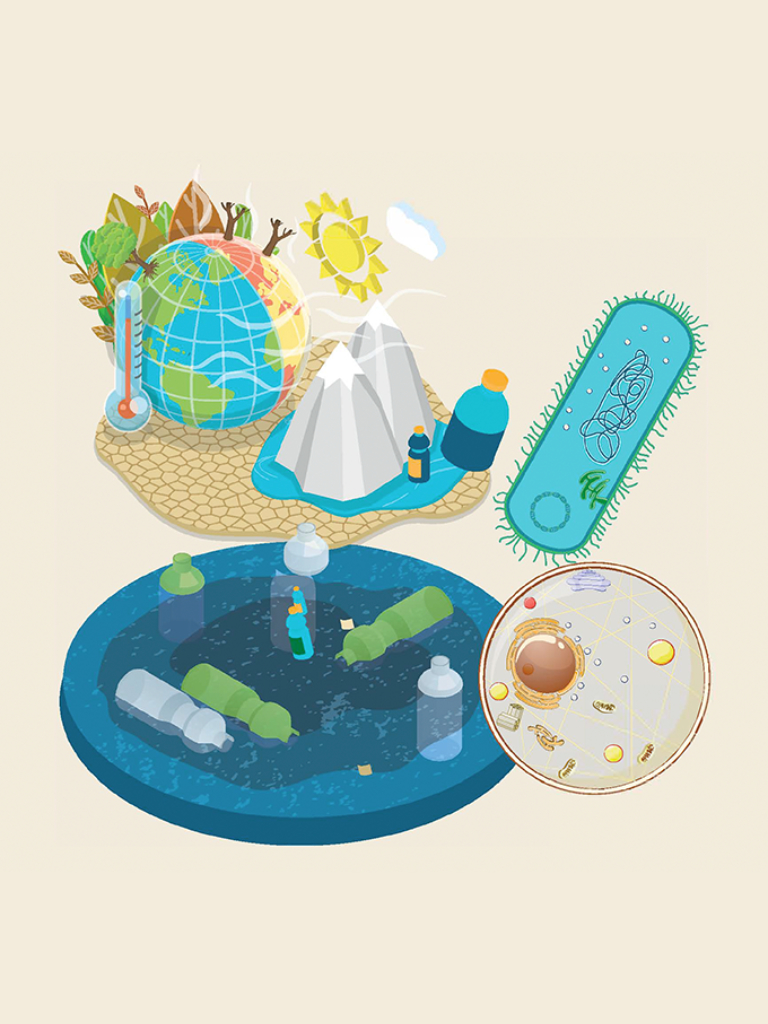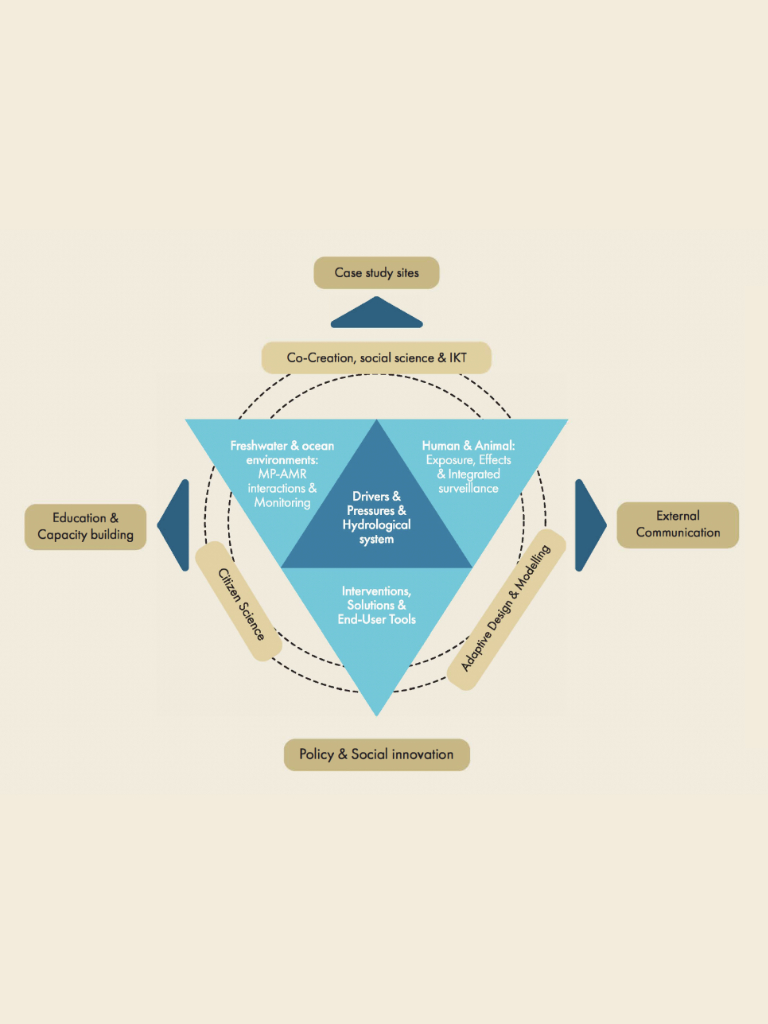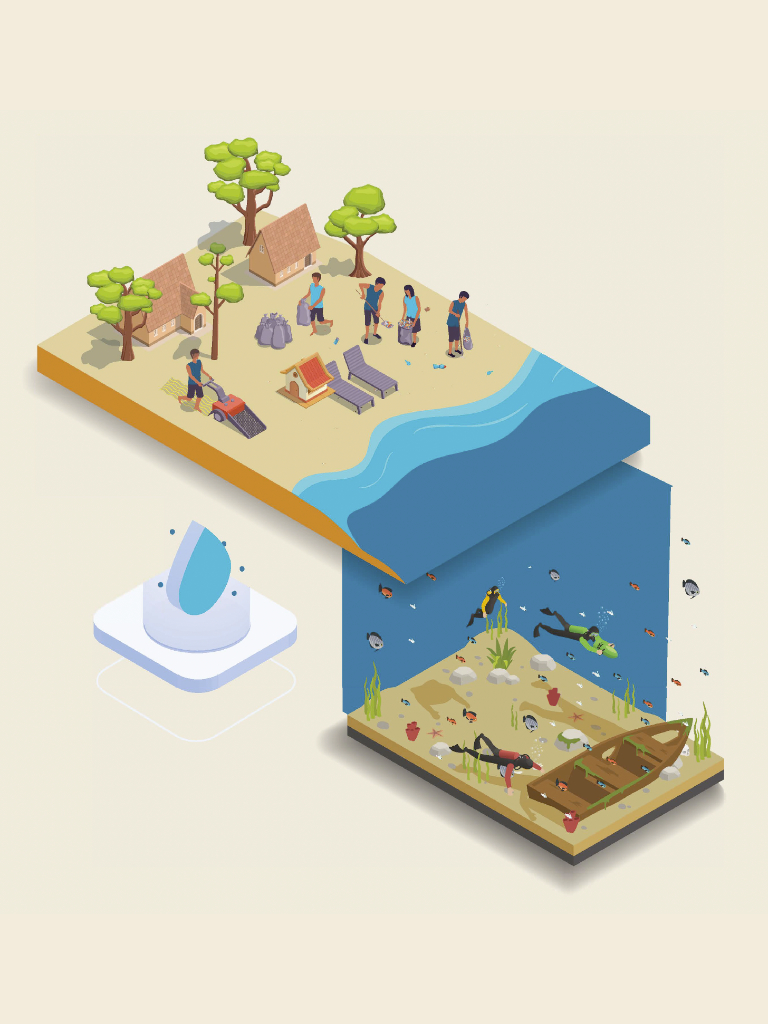Address
Heidelberg University
Im Neuenheimer Feld 205, 4/325
69120 Heidelberg
Germany
Contact
Uliana Kachnova
uliana.kachnova@uni-heidelberg.de
TULIP targets the intertwined threats of antimicrobial resistance, plastic waste, and climate change in rivers, lakes, and coasts—treating them as one compound risk to human and ecosystem health.
Through community co-creation, we blend behavioral science and nature-based engineering to pilot litter traps, biofilm disruptors, and antibiotic-misuse interventions, then run scenario tools so stakeholders can weigh costs, benefits, and equity before scaling.
Using adaptive sampling, hydrodynamic modeling, eco-epidemiology, and high-resolution genomics in a socio-ecological framework, we trace plastics, pathogens, and climate signals from source to sea and turn field data into clear exposure metrics.
Communities, policymakers, NGOs, and citizen scientists shape the project end-to-end—via policy roundtables, co-creation workshops, citizen water sampling, MOOCs, and scenario-tool training—to ensure evidence gets used and solutions can grow.
Floating microplastics form the “plastisphere,” a biofilm habitat where bacteria freely swap antibiotic-resistance genes. Warming waters and shifting flow patterns then carry this plastic resistome through rivers and coasts, heightening the risk of water-borne AMR for people, livestock and wildlife.

TULIP unpacks how antimicrobial resistance, microplastics and climate pressures interact across socio-ecological systems and traces their combined impact on human and animal health. Armed with this evidence, we co-design bold interventions that break the status quo and build environments where health can thrive.

TULIP blends adaptive geospatial-hydrological modelling, molecular AMR tracking and machine-learning forecasts with community-driven research to pinpoint hotspots and craft nature-based interventions. These insights flow into user-friendly decision tools and citizen-science initiatives that turn regenerative ideas into policy and practice.

Citizen scientists enlarge TULIP’s surveillance net and co-create solutions—from grassroots data and behaviour studies to a global MOOC and social-innovation workshops—while participatory insights feed directly into policies that merge plastic and AMR monitoring from local to EU scale.
Twelve organisations—spanning universities, research institutes, NGOs and SMEs across Europe and the Philippines—join forces to convert TULIP’s science into real-world impact on water health.